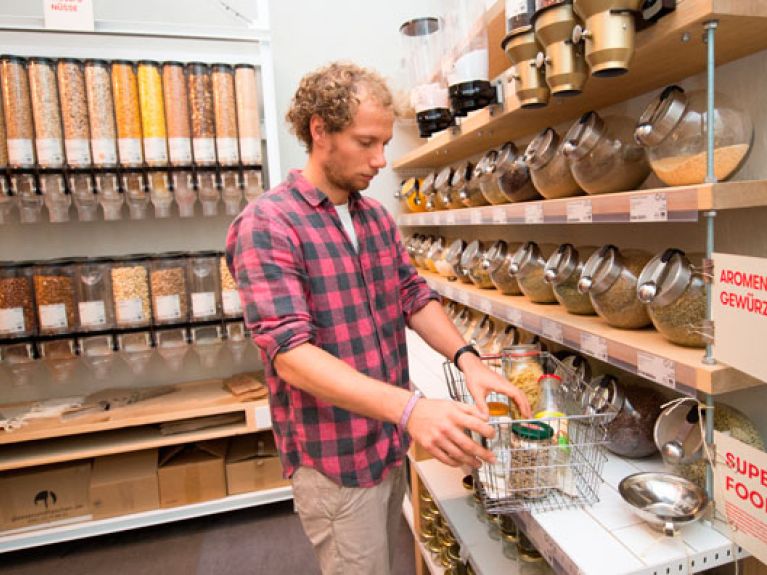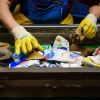Living without waste
No plastic packaging, no takeaway coffee cups: it is not easy to live without generating waste, but it is possible. Two families show how it is done and give some simple tips.

Germany. Is it too idealistic to imagine a life without waste? In an era dominated by online mail order services, an addiction to takeaway coffee and plastic packaging, it does at least sound a very distant dream. Per capita, Germans produce more than 600 kilograms of rubbish each year – which is well above the EU average of around 474 kilograms per head of the population.
At the same time there is an opposite trend, with people attempting to generate as little waste as possible by buying directly from producers, using fabric rather than plastic bags, and establishing a compost heap in the garden. The zero-waste trend involves six rules: refuse, reduce, reuse, repair, recycle and rot.
Setting a good example
Two families show that it is possible – even with children – to get through life creating virtually no rubbish. “We hope that our zero waste approach will save us time, improve our quality of life, reduce our carbon footprint, give us better health and save us money”, explains the “zero-waste family”, a family with three children from Bruckmühl in Bavaria.
A family from Cologne reports on their experiences on a blog entitled simplyzero.de. In her bathroom for example, Verena Klaus uses no more than a small piece of soap made from olive oil, a wooden toothbrush, toothpaste powder and coconut oil for removing make-up. To make shampoo she mixes rye flour with lukewarm water, her home-made deodorant is made from bicarbonate of soda, cornflour and coconut oil, while her eye shadow is a blend of cinnamon, cocoa and turmeric.
Three tips for creating less waste
- Regrow vegetables: If your potatoes have sprouted in the crisper drawer or your spring onions have dried out, don’t chuck them in the compost bin. Spring onions will regrow if placed in a glass of water, while potatoes can be put in a flowerpot at first and later replanted in the garden, where they will grow into large, strong plants with lots of new potatoes.
- Cook yourself rather than order food: Ordering takeaway food produces large amounts of waste – pasta is delivered in polystyrene packaging along with disposable cutlery and napkins. It is better to buy the pasta yourself and to serve it up with fresh tomatoes from the market or your balcony, and with fresh herbs and spices. It is also much more delicious that way! If you really do not have time to cook, it is better to eat in a restaurant than to have takeaway food delivered.
- Buy unpackaged products: These days there are shops in many big cities that sell unpackaged foods. Cheese, rice and yoghurt are simply filled into reusable containers that customers bring with them.
@ www.deutschland.de

